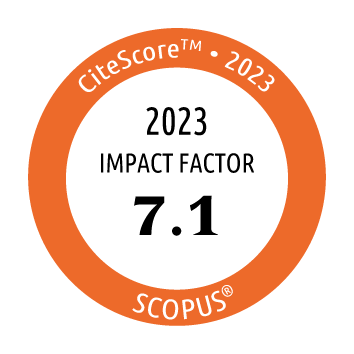|
García BE1,2,
Martínez-Aranguren R2,3, Bernard Alonso A3,
Gamboa P4, Feo Brito F5, Bartra J6,
Blanca-López N7, Gómez F8,
Alvarado MI9, Fernández J10,
Alonso MD11, Gonzalez-Mancebo E12,
Moya C13, Parra A14, Terrados S15,
Sola L1, Goikoetxea MJ2,3, Sanz ML2,3 |
|
1Allergology Service,
Complejo Hospitalario de Navarra, Pamplona, Spain
2IdiSNA, Navarra Institute for Health
Research, Spain
3Allergology and Clinical Immunology
Department, Clínica Universidad de Navarra, Pamplona,
Spain
4Allergology Service, Hospital de Basurto,
Bilbao, Spain
5Allergology Service, Hospital General
Universitario de Ciudad Real, Ciudad Real, Spain
6Unitat dAlèrgia Servei Pneumologia i
Alèrgia Respiratoria Universitat de Barcelona, Institut
dInvestigacions Biomèdiques August Pi i Sunyer (IDIBAPS),
Centro de Investigaciones Biomédicas en Red de
Enfermedades Respiratorias (CIBERES), Barcelona, Spain
7Allergology Service, Hospital Infanta Leonor,
Madrid, Spain
8Allergology Service, IBIMA, Hospital
Regional Universitario de Malaga, UMA, Malaga, Spain
9Allergology Service, Hospital Virgen del
Puerto, Plasencia, Cáceres, Spain
10Allergology Service, Hospital General
Universitario de Alicante, Alicante, Spain
11Allergology Service, Hospital de Alcorcón,
Alcorcón, Spain
12Allergology Service, Hospital de
Fuenlabrada, Madrid, Spain
13Allergology Service, Complejo Hospitalario
Torrecárdenas, Almería, Spain
14Allergology Service, Hospital de A Coruña,
A Coruña, Spain
15Allergology Service, Hospital Universitario
Ramon y Cajal, IRYCIS, Madrid, Spain |
|
Abstract |
|
Background:
Multiple
sensitization is
frequent among
pollen-allergic
patients. The goal
of this study was to
determine the
diagnostic accuracy
of the ImmunoCAP
ISAC 112 (ISAC112)
microarray in
allergy to pollen
from several taxa
and its clinical
utility in a Spanish
population.
Methods:
Specific IgE was
determined in 390
pollen-allergic
patients using the
ISAC112 microarray.
Diagnostic accuracy
(sensitivity,
specificity,
predictive values,
and area under the
ROC curve) was
calculated for the
diagnosis of allergy
to pollen from grass
(n=49), cypress
(n=75), olive tree
(n=33), plane tree
(n=63), and
pellitory of the
wall (n=17) and
compared with that
of the singleplex
ImmunoCAP
immunoassay.
Results: The
sensitivity of the
ISAC112 microarray
ranged from 68.2%
for allergy to plane
tree pollen to 93.9%
for allergy to grass
pollen. The
specificity was
>90%. The AUC for
the diagnosis of
allergy to plane
tree pollen was
0.798, whereas the
AUC for the
remaining cases was
≥0.876. The accuracy
of ISAC112 was
higher than that of
ImmunoCAP for plane
tree pollen and
similar for the
remaining pollens.
The frequency of
sensitization to
most
species-specific
allergenic
components and
profilins varied
between the
different
geographical regions
studied. A total of
73% of
pollen-allergic
patients were
sensitized to
species-specific
components of more
than 1 pollen type.
Conclusions:
The ISAC112
microarray is an
accurate tool for
the diagnosis of
allergy to pollen
from grass, cypress,
olive tree, plane
tree, and pellitory
of the wall. The
features of the
ISAC112 microarray
are similar or
superior (in the
case of plane tree
pollen) to those of
ImmunoCAP. This
microarray is
particularly useful
for the etiologic
diagnosis of
pollinosis in
patients sensitized
to multiple pollen
species whose
pollination periods
overlap.
Key words:
Microarray. Pollen
allergy. Molecular
diagnosis. Accuracy. |
|
|
|
| |
|
|




